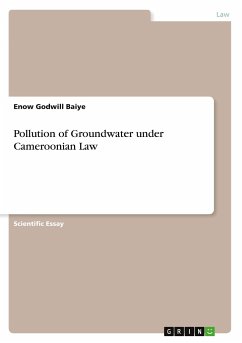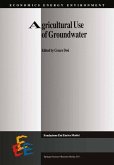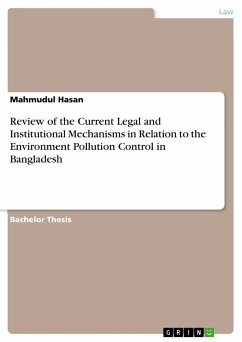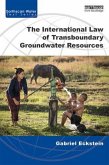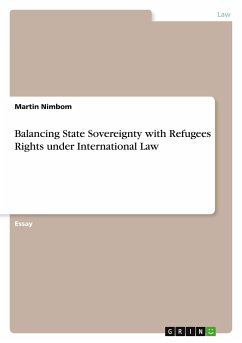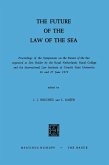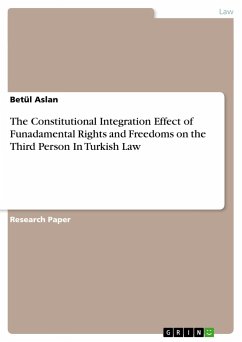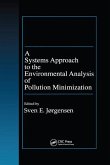Scientific Essay from the year 2022 in the subject Law - Public Law / Miscellaneous, , course: Environmental law, language: English, abstract: The principal objective of this research is to examine the extent to which the relevant and existing legal instruments in Cameroon addresses the problem of groundwater pollution in Cameroon. The methodology used to attain this main objective and to address the problem is the critical analyses of the existing legal initiatives and institutional frame-works that punishes those who causes groundwater pollution. The work reveals that despite the existence of a plethora of legislations that exists in this area of the law, groundwater pollution has been a persistent problem in Cameroon caused by the lacunae of the existing enable legal instruments laws. As a result of this, the study puts forth a set of recommendations, amongst which include the amendment of Law No.98/005 of 14 April 1998 that lay down regulations governing groundwater resources in Cameroon. Environmental pollution is increasingly a problem in Cameroon, like in most African Countries, where the environmental consequences of development cannot be ignored. One of the major form of pollution is and water pollution. The sources of groundwater pollution in Cameroon stems from discharge of solid, liquid or gaseous matter, in particular industrial, agricultural and atomic wastes into water with the resultant effects of water-borne diseases like cholera, dysentery and in most cases, water scarcity.
Bitte wählen Sie Ihr Anliegen aus.
Rechnungen
Retourenschein anfordern
Bestellstatus
Storno

